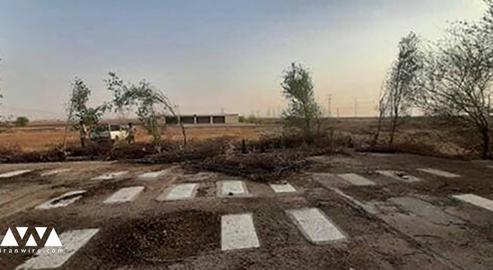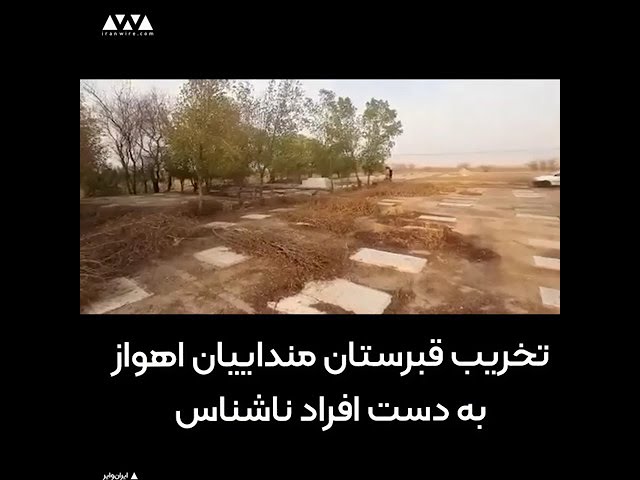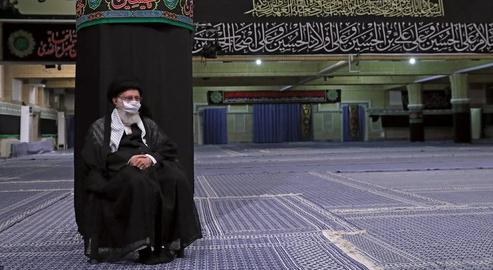On August 11, a group of Iranians from the Mandaean religious community went to visit the graves of their loved ones in Ahvaz, Khuzestan. When they got there, they discovered the tombstones had been destroyed, and the trees they had lovingly planted were torn out of the ground.
One of the desecrated tombs had belonged to Ganzora Jabbar Tavousi, a leader of the often-sidelined Mandaean community in Ahvaz. "These attacks are bitter and distressing for us," one of the affected parties told IranWire. "Where does this hatred come from?
“In all religions and throughout human history, the dead have always been respected. We’re a minority group and we only seek peace. This behavior is deeply regrettable.”
The Mandaean community in Iran is centuries-old, monotheistic and reveres figures including Adam, Abel, Noah and John the Baptist. It also has its own particular burial rites. Believing the body must be pure at the time of death, the Mandaeans bathe their dead and dying in the waters of Iran’s rivers.
Ever since the establishment of the Islamic Republic in 1979, the Mandaeans of Iran, like other religious minority groups, have come under unprecedented levels of state-sponsored pressure. This is also not the first time a Mandaean cemetery in Khuzestan has been targeted. In 2015 vandalism of the Mandaean cemetery of Susangerd was met with widespread protests. Locals initially thought it was an accident but then several graves in a row were destroyed during the 40-day mourning period immediately after burial.
Last October, it emerged that the graves of Mandaean veterans were being segregated from the rest of Khuzestan’s Iran-Iraq war graves, leading to their becoming neglected and the targets of sabotage. "Some years ago in Ahvaz,” a resident told IranWire at the time, “a Mandaean father and three of his children died in an accident.
“The day after the burial, the mother and her son went to visit their loved ones. They found that locals, who knew it was a Mandaean cemetery, had placed old tires around the fresh graves and set them on fire. This grieving woman has been suffering from nervous disorders ever since. She never recovered from it."
Another member of the Mandaean community told IranWire: "We’ve never created any issue for the Islamic Republic. But we’ve always been discriminated against. We don’t know why we are the target of the wrath of those who destroy the graves of our dead."
The destruction of the Mandaean cemetery in Ahvaz occurred at the same time as Islamic Republic of Iran Broadcasting declared the city a “National City of Blue Enamel” a special cultural designation.
The Islamic Republic insists it has worked to reduce discrimination against Mandaeans by carrying out public education campaigns, and by allowing them to practice at least some aspects of their faith as an officially-unrecognized religious minority. But like other such communities, they are denied access to public sector employment and must publicly renounce their beliefs to enter university.
In recent years, a large number of Mandaeans have left their ancestral homeland settled in European countries and North America due to the failure of the Islamic Republic to guarantee their civil rights.
Related articles:
Help Us Keep Covering Religious Minorities in Iran
Mandaeans in Iran: Discrimination Begins at Birth
A Mandaean Priest's Dashed Hopes for Change in Iran
Mandaean Goldsmiths Complain of Discrimination and Ransom Demands
visit the accountability section
In this section of Iran Wire, you can contact the officials and launch your campaign for various problems





























comments